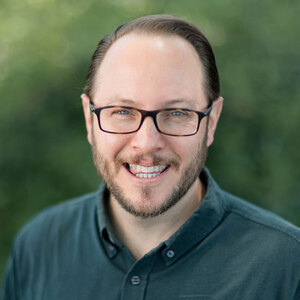For those of you who donÔÇÖt know, I have entered a new season in my academic life. about my new role as the Director of the Institute for Spiritual Formation (ISF) at Talbot School of Theology, Biola University, I wrote this as a kind of vision for what I hoped to see at Talbot:
I am convinced that the church is in desperate need of a Word-centered, Spirit-empowered, whole-life spirituality aimed at the care of souls. To do this faithfully, we need to integrate, theologically, a full-orbed understanding of spiritual formation that takes seriously scripture, tradition and the contemporary conversations about these things in other fields.
Our aim is to have an unapologetically Protestant vision that has sat deeply with an account of spiritual formation that is by faith alone, through grace alone, in Christ alone, for the glory of God alone.
Importantly, one of the distinctive features of our Institute, that permeates all of our degree programs, is a vision of integration that is not simply the integration of ideas. Integration is more than taking a set of theological ideas and slamming them together with philosophical, psychological or other ideas, like we are running the seminary equivalent of a hadron collider. Instead, theological integration needs to happen in persons.
In light of this vision, I think a lot these days about the future of soul care. Gregory the GreatÔÇÖs famous quote still rings true:
ÔÇťThe direction of souls is the art of all arts.ÔÇŁ
But if this is true, where do we learn this art? Where do we study the depths of what it means to be with another in the presence of God?
For those of you who have followed me on Substack for a while now, you know of my worry that the focus on spiritual disciplines has left the spiritual formation conversation at a standstill. It has remained in its infancy and often devolves into a Christian-branded vision of life-hacks rather than growth in holiness. But when all of that branding fails, and when people realize that more spiritual disciplines wonÔÇÖt fix their life, we will still have the broken, messy and relationally-trying reality of life together.
As IÔÇÖve wrestled over what I want to give myself to vocationally, not only as a theologian, but also simply as a Christian, I continually come back to what we call at Talbot ÔÇťSpiritual Theology.ÔÇŁ
Spiritual theology is the vision of integration that I named above, whose goal is not academic achievement, but shepherding souls to their Lord. To enact this vision, we have to address not only the biblical and theological depths of things like regeneration (new birth), sanctification (holiness) and glorification, but we do so with a particular eye on the true reality of life in the body of Christ. In doing so, we must attend to what spiritual formation is actually like, and not simply how we imagine it should be like.
We have sought to be creative in how we approach this in a seminary context. We integrate prayer into our curriculum, so that the students are not merely thinking about these things, or even just talking about them with their fellow students, but are bringing what they are learning, along with their whole lives, to the Lord. We use cohorts to cultivate an experience of life together, mirroring the reality of the church, where you are thrown together with people not of your choosing who are now brothers or sisters in Christ. We have everything from theology classes to highly experiential intensives, from practicum labs to studying the history of Protestant spirituality.
To enact this vision, of course, we need more than programs. We need people, care and a commitment to a certain vision of an integrated curriculum. Thankfully, we have had wonderful support from Talbot School of Theology, which has both affirmed the need for a seminary that champions soul care, and also resourced us to do this in a robust way. The founders of our program were a philosopher/theologian, a psychologist (who was a former missionary) and a marriage and family therapist who focused in the care of pastors and soul care in the church.
I am now leading a second generation of those who were mentored by these three dear souls ÔÇô some of the most profound human beings IÔÇÖve ever met ÔÇô and we do so with not a small amount of fear and trepidation. But as my associate director, Berry Bishop, frequently reminds, we do so as they did, by leading with prayer. Whereas I have taken over as director, in the role of theologian, we have not lost sight of integrating various disciplines, as I lead with a psychologist (Berry has a PsyD), a marriage and family therapist (Megen Phillips), who is also an alumus, along with several others who help serve, lead, and teach in the area (John Coe, our founding director is taking on more teaching now, and we praise God for his continual service).
Berry Bishop has become a dear friend, and as she more directly directs our marriage and family therapy degree, she also has a hand in everything going on at ISF. It would be hard to put into words how important and unusual it is to have a psychologist with her background who is the first one to remind anyone listening: remember, theology is the queen of the disciplines, and not psychology. We want integration, but our integration is given its task, contours and guidance from theology.
Along with those named, we have had an open position at ISF for over a year. After a global search, and an amount of meetings that only can be named legion, we are excited to announce that we have hired David Merrill (PhD, Durham), to help serve our students in the Institute for Spiritual Formation. Dave is already well-known by many in our context as a professor who leads with both kindness and pastoral care, serving our students and helping to integrate spiritual formation, theology and ministry. Dave also preaches regularly and serves as an elder at Redeemer Church, bringing his experience of spiritual formation in a church context into our classrooms.
DaveÔÇÖs academic work has focused on the spiritual theology of Thomas Traherne, a key muse of C. S. Lewis and others, where he has explored how beauty and desire function in his theological convictions and pastoral impulse. Hiring Dave was essential to maintain our relational and pastoral emphasis, modeling this impulse in varied ways and exploring the lived reality of spiritual formation. Dave will be helping us in a myriad of ways and will be teaching and leading across our curriculum for Talbot students broadly, but in a more focused way with students in ISF and our marriage and family therapy programs.
We are, as you can imagine, ecstatic to have Dave on faculty, and look forward to seeing his role develop in service of ISF and MFT students.
Along similar lines, it has become clear to me that while we have focused a lot on spiritual direction and marriage and family therapy, there is a more fundamental aspect of care that might be seen as neglected: pastoral care.
Pastoral care is the fundamental care of the church. As one of our founding faculty members once told me, who is a psychologist herself: A lot of people need therapy, a lot more people need spiritual direction, but everyone needs pastoral care.
For a long time now I have seen Talbot as the seminary of soul care. This is not all we do, and my own area is just one facet of that, and so along these lines I am very excited to add that we have also made a new hire in this area as well, and it is no other than my dear friend and co-author Jamin Goggin:
Jamin brings 20 years of pastoral experience, a PhD in theology, and a background in spiritual formation to Talbot (he is an alumnus of ISF). But he is also, next to my wife, the person I have journeyed with most closely with over the past 20 plus years. Jamin and I have written or edited three books together, and I am sure that number is going to increase with his presence on campus. He is a profound thinker and is one of the most significant voices I know speaking today about the life of the pastor.
As an aside, JaminÔÇÖs new book, . I canÔÇÖt remember the last time I read a book and thought, ÔÇťThis is a must-read for every pastor.ÔÇŁ But this is it. Pastors need to confess, and they need to confess their uniquely pastoral sins. This is a book every pastor should own, read and talk about with other pastors. I canÔÇÖt wait to see this in print (after reading the manuscript in several stages!).
As the church continues to look at toxic leaders, toxic cultures, sinful pastors, abusive systems and even just worldliness saturating the body of Christ, we need to have a serious conversation about soul care. Our people need good teaching, to be sure. We need to catechize, train, and develop. But what people are so absolutely desperate for is shepherding. We need to put the shepherd back into the pastor, and stop pretending that a pastor is a guest preacher who never leaves.
The call of the pastor is to shepherd the people of God in the presence of God for life with God in this present evil age. We need to remember this vision of pastoral ministry, which can never be less than soul care. Because of this, we need to recover the real spiritual office of pastoral ministry, where we remember that all pastoral work is a kind of spiritual theology. This is the work we are committed to.
For more on the Institute for Spiritual Formation, visit the website.
and others can be found on .
 Biola University
Biola University




